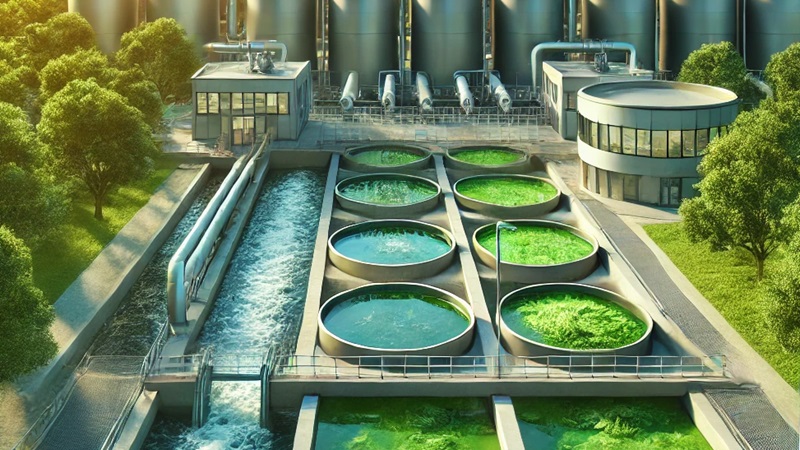
The Role of Wastewater in Climate Change: A Hidden Contributor
Most Read Stories Today
-
Water Scarcity and Artificial Rainfall: The Positive and The Negative Effects of Cloud Seeding, including Health Hazards and Climate Implications.
-
Renewable Energy in Rural Areas: Challenges, Opportunities, and Successful Rural Projects
-
Pakistan's Agriculture at Risk Due to Climate Variability
-
South Korea's floods: root causes and prevention strategies.
-
South Africa's Recent Floods: Is Climate Change to Blame?
-
South Africa: Cape Town, A City Under Fire
-
The Human Cost of Climate Disasters
-
Our Oceans, Our Future: The South African Dilemma of Overfishing
-
Degenerative Impact of Hydrocarbons On The Environment.
-
Successes and Failures of Paris Agreement
Climate change is an urgent global issue with far-reaching consequences, yet one of its lesser-known contributors is wastewater. Often viewed merely as a local sanitation challenge, wastewater actually plays a significant, yet underappreciated, role in exacerbating climate change.
When not treated properly, wastewater releases powerful greenhouse gases like methane and nitrous oxide, both of which significantly contribute to global warming. In this article, we will examine the relationship between wastewater and climate change, shedding light on its hidden impact while exploring potential solutions to mitigate its effects.
Wastewater, which consists of sewage from homes, industries, and agricultural activities, is not just a local nuisance—it is a notable source of greenhouse gases. When wastewater undergoes anaerobic decomposition (breakdown without oxygen) due to poor treatment, methane is produced. Methane is approximately 25 times more effective at trapping heat in the atmosphere than carbon dioxide over a century.
Additionally, wastewater treatment processes, particularly denitrification, can release nitrous oxide, another potent greenhouse gas. Though this is a necessary process to eliminate nitrogen compounds from wastewater, it results in the emission of nitrous oxide in significant quantities. This combination of methane and nitrous oxide elevates the role of wastewater as a hidden climate change contributor.
On a more optimistic note, wastewater also holds the potential to be a valuable resource in the fight against climate change. Modern treatment technologies are now harnessing the methane produced during wastewater treatment to generate biogas, which can be used as an energy source for electricity or heating. This energy recovery process not only reduces greenhouse gas emissions associated with wastewater treatment but also promotes renewable energy.
Furthermore, wastewater can be a source of valuable nutrients like phosphorus and nitrogen. Instead of treating these nutrients as waste, some innovative methods involve recovering them for use as fertilizers, reducing the reliance on chemical fertilizers—products that are energy-intensive to produce and environmentally harmful. Various green technologies, such as algae-based treatments and natural filtration systems like constructed wetlands, are also showing promise in mitigating wastewater's environmental impact while maintaining effective waste management.
Examples of Innovative Solutions
Countries like Germany and Denmark are already implementing these innovative systems, making their wastewater treatment plants both energy-efficient and eco-friendly. These practices highlight the potential to reduce wastewater’s negative impact on the environment and even turn it into a source of sustainable energy and resources.
Conclusion
Wastewater is a hidden yet significant contributor to climate change, and addressing its environmental impact is critical in the global effort to combat warming. By adopting cutting-edge treatment technologies that reduce methane and nitrous oxide emissions, and by recovering valuable resources like nutrients and biogas, we can significantly improve wastewater management and its role in environmental sustainability. Solutions such as biogas recovery, eco-friendly filtration methods, and resource recovery must be scaled up to reduce the harmful effects of wastewater.
Call to Action
To make a real difference, governments, industries, and communities must invest in innovative wastewater treatment solutions and policies that prioritize sustainability. As individuals, we can also advocate for policies that push for cleaner, more efficient water management practices. It is time to rethink wastewater as more than a problem—it’s an opportunity to create a greener, more sustainable future for the planet.

Terms & Conditions
Subscribe
Report
My comments